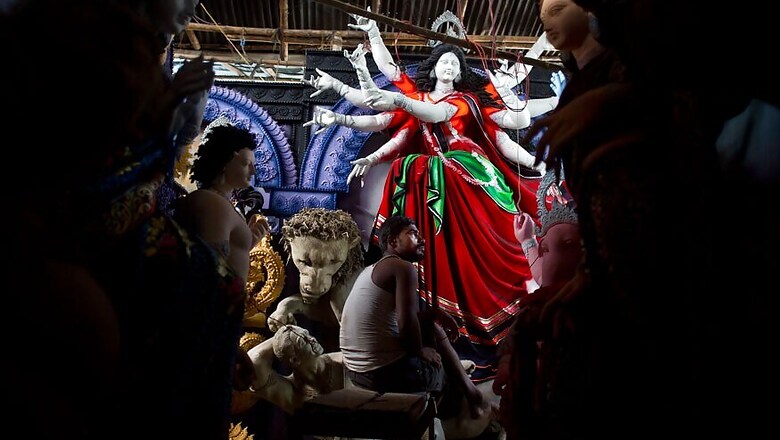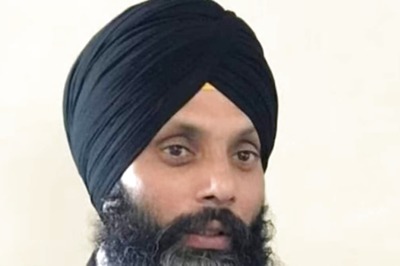
views
Kolkata: The Calcutta High Court on Wednesday sought to know from the West Bengal government why it had decided to ban Durga immersion on the day of Muharram on October 1.
“If the state government thinks that there is a possibility of a satellite fall on High Court, then will they pass an order to vacate the High Court?” observed the division bench on apprehensions expressed by the state that the Durga immersions coinciding with Muharram processions can lead to a law and order situation.
During the hearing, the division bench, comprising Justice Rakesh Tiwari and Justice Harish Tandon, questioned, “Why was it not possible in Bengal for two communities to celebrate together? Let the two communities live together with harmony. Don’t try to create a line.”
The order triggered a row, with the BJP, Vishwa Hindu Parishad, and the Rashtriya Swayamsevak Sangh, accusing the government of appeasement politics.
"People have the right to practise their religious activities, whichever community they may be of, and the State cannot put restrictions, unless it has a concrete ground to believe that two communities cannot live together," the acting chief justice said.
"You must clarify why you are apprehending a law-and-order situation," the bench told state Advocate General (AG) Kishore Dutta, who claimed that it was the administration's prerogative to decide on steps to prevent any untoward situation.
"Public order and law-and-order are administrative issues," Dutta submitted, while claiming that the court's interference in it would amount to trudging into the administration's domain.
The West Bengal government has imposed restrictions on Durga idol immersions on September 30, the Vijaya Dashami day, after 10 PM and no immersion would be allowed on October 1, the day Muharram is scheduled to be observed.
The bench said the administration could regulate the routes for the immersion processions to follow and those through which the 'Tajia' processions of Muharram would pass.
"In the interest of maintaining law-and-order and in order to prevent an untoward incident, the administration can regulate a religious congregation or procession," the AG submitted before the court.
"It is a preventive action to rule out any possibility of a law-and-order situation," he said.
The court observed that it was not disputing the state's right to regulate, but the administration could not restrict the observance of one's religious rights.
"We are asking you to eliminate the element of arbitrariness and provide a concrete ground for your action," the bench said.
"If you say there is complete harmony, are you (the state administration) not creating a line of division between the two communities by your action?" asked Justice Tandon.
When the AG reiterated that the state had taken the decision to prevent any untoward incident, the acting chief justice observed, "Let them live in harmony, do not create a line between them."
The court further said it was advocating peace, harmony and living together.
The hearing in the three PILs was concluded and the order is scheduled to be passed tomorrow.
Later, a petition was filed in the Calcutta High Court against West Bengal Chief Minister Mamata Banerjee’s decision to ban idol immersion on the day of Muharram on October 1.
The petition has been filed by a city based-lawyer Smarajit Roy Chowdhury. Roy Choudhury is the same petitioner who claimed that Job Charnock was not the founder of Calcutta (now Kolkata). The final verdict has been reserved for Thursday.
(With PTI inputs)




















Comments
0 comment